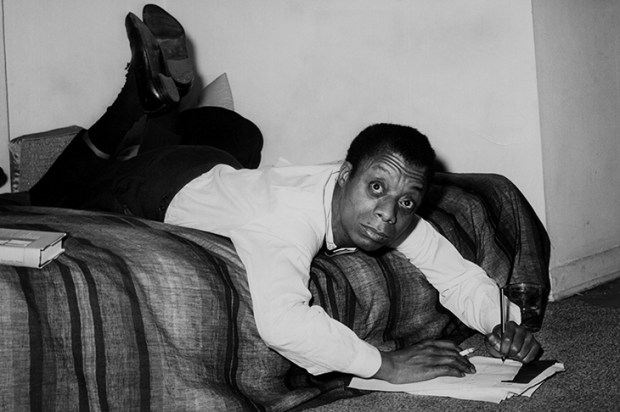A good indicator of just how interesting and alluring Lydia Davis’s Essays proved might be my recent credit card statement. It was hard to read very far without being introduced to an unfamiliar author, and the terms of the introduction were frequently so seductive that I found myself breaking off to order several secondhand books. The fee for writing this review had long been swallowed up when I realised that if I read everything that Davis made sound irresistible I would probably never reach the end of this splendid collection — and end up like Achilles chasing the tortoise in Zeno’s paradox.
A writer of literary essays who encourages her readers to discover new works, to re-read familiar classics and to shift unexamined prejudices that have left authors untouched has done her job. In Davis’s case, I returned to Madame Bovary; and I was pushed towards both the growing reputation of James Agee and the unfashionable novels of Edward Dahlberg.
There are writers here I’ve barely heard of, such as Felix Fénéon, who published before the first world war the remarkable Nouvelles en trois lignes — a miscellany of macabre episodes taken from the gutter press. For instance:
At five o’clock in the morning, M.P. Bouget was accosted by two men on Rue Fondary. One put out his right eye, the other his left. In Necker.
There are many even more extraordinary books to investigate, such as Virginia Tufte’s Artful Sentences: Syntax as Style, an idiosyncratic and learned taxonomy of sentences by structure. And there are writers of small, local reputation, including Roger Lewinter, who wrote about the marché aux puces in Geneva and turns out to live round the corner from us there. Best of all was an introduction to the counter-cultural New York poet ‘Sparrow’, whose America: A Prophecy includes a set of ‘translations from the New Yorker’, rendering poetry published in that magazine in a less mandarin style. One original, by Eric Ormsby, appeared, amazingly, in 1991:
The stately ripple of the garter snake
In sinuous procession through the grass
Compelled my eye. It stopped and held its head
High above the lawn, and the delicate curve
Of its slender body formed a letter S —
For ‘serpent’, I assume, as though
Diminutive majesty obliged embodiment.
This is the translation by ‘Sparrow’:A snake moved through grass
And I watched.
It looked like an S.
Davis is an essayist who certainly knows how to tempt readers into more reading.
Why is she such a good guide to writing? I would say that, to an unusual degree, she has tastes which go well beyond her own preferred manner. As a writer of fiction herself, she has a strong interest in very short pieces, some comprising half a dozen words, and also in fiction which investigates its own forms of expression, and dramatises them. There are some excellent essays here about what her writing is associated with: the very brief statement — including a beautiful and resonant four-page piece about a ‘translation from the Cheremiss’ by Anselm Hollo which, in total, reads:
i shouldn’t have started these red wool mittens they’re done now
but my life is over.
But she also writes well about the monuments of the French nouveau roman, including Michel Leiris, Michel Butor, Maurice Blanchot and Alain Robbe-Grillet. There are essays, too, about less predictable enthusiasms, including Stendhal’s The Life of Henry Brulard, Thomas Pynchon and, amazingly, though in passing, Barbara Pym. You can trust a critic who doesn’t appear to be driving an agenda, and you can trust an author who can produce the fascinating and inspiring ‘Thirty Recommendations for Good Writing Habits’ which, on reflection, her own writing doesn’t always follow. Number 24, on expressing the physicality of the world, is a good principle, but not one that Davis herself invariably adopts.
Most of all, her essays inspire confidence because she seems almost exclusively interested in the stuff of literature — in words and sentences. Unusually these days, she is a writer who loves etymology, pointing out that capricious has a goat hiding in it, that seeds give rise to sporadic and diaspora and (for once rather stuffily) that dilapidated can be used of a stony thing like a wall but not of a pair of trousers.
Next to her, many acclaimed critics seem only concerned by the morals literature draws, or its relationship to huge and serious subjects such as religious belief. Davis is interested in the quality of writing. She doesn’t care that bien-pensant opinion has long since shredded Nirad Chaudhuri, and quotes from him, in admiration, a sublime paragraph of description. She is squarely of Auden’s view that aesthetic excellence prevails over moral disagreement —
Time…
Worships language and forgives
Everyone by whom it lives…
Time, that with this strange excuse
Pardoned Kipling and his views
And will pardon Paul Claudel,
Pardons him for writing well.
Whether this is now true, when an accusation against a writer is enough to condemn them no longer to be read at all, remains to be seen. I would love to read an essay by Davis on the unforgiven of French literature — Céline, Henry de Montherlant, Charles Péguy, Pierre Drieu La Rochelle.
This hugely enjoyable collection puts as strong a case as can be imagined for exquisite labour among words and syntax, and should do a great deal to remind us how complex the pleasures we take in literary expression can be.
Got something to add? Join the discussion and comment below.
Get 10 issues for just $10
Subscribe to The Spectator Australia today for the next 10 magazine issues, plus full online access, for just $10.
You might disagree with half of it, but you’ll enjoy reading all of it. Try your first month for free, then just $2 a week for the remainder of your first year.














Comments
Don't miss out
Join the conversation with other Spectator Australia readers. Subscribe to leave a comment.
SUBSCRIBEAlready a subscriber? Log in